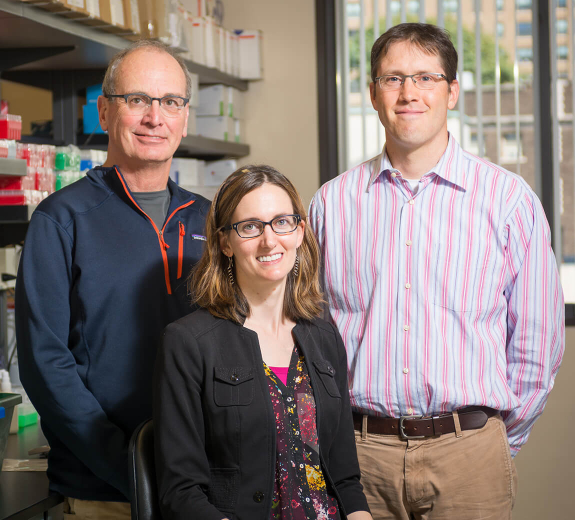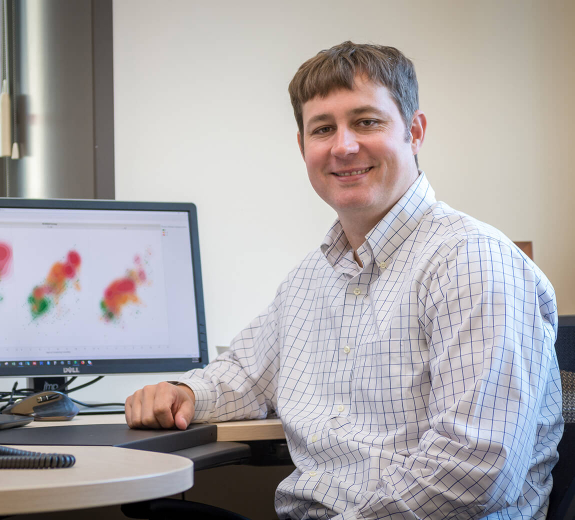The bioinformatics team uses Amazon cloud computing tools to search through thousands of genes to see where each piece of RNA came from. The same tools help count the RNA pieces to understand which genes are especially active in people with a specific disease.
“There are around 20,000 human protein-coding genes, so this is something you could never do on paper – it takes an immense amount of computing power,” says Matt Dufort, PhD.
The bioinformatics team also uses programming languages, such as Python and R, to write algorithms that compare patients and reveal which genes they have in common.
“If certain genes are more active in people with diseases, it provides clues about what is driving the disease – so we work with researchers to figure out what those genes are doing,” Dr. Dufort says.
Improving Diabetes Treatment
BRI’s bioinformaticians are fueling insights that could improve treatment for diseases like type 1 diabetes.
For example, Dr. Dufort and his colleagues help Dr. Linsley’s lab study immunotherapies that slow down type 1 diabetes by extending the body’s ability to make insulin. The bioinformatics team analyzes blood sample data from patients who respond to drugs, looking for clues about why they’re different from patients who don’t. The bioinformatics work includes designing the analysis to yield the most accurate results, and then using other data or statistical tests to confirm those results.
“This could lead to a test that lets doctors predict whether the drugs will work for a particular individual,” Dr. Dufort says.
It’s also a step toward a day when doctors can tailor autoimmune disease treatment to individual patients.
“Someday, we want to be able to evaluate patients with type 1 diabetes and say, ‘you have this particular strain of the disease, and we know exactly which treatments can help,’” Dr. Dufort says.
Pursuing Autoimmune Disease Cures
As gene sequencing becomes integral to BRI’s research, the bioinformatics team is being confronted by more and more data, and more opportunities to fuel discoveries.
“It definitely gives us job security,” Dr. DeBerg says with a laugh, “but hopefully we’ll make so much progress against these diseases that we put ourselves out of business.”





